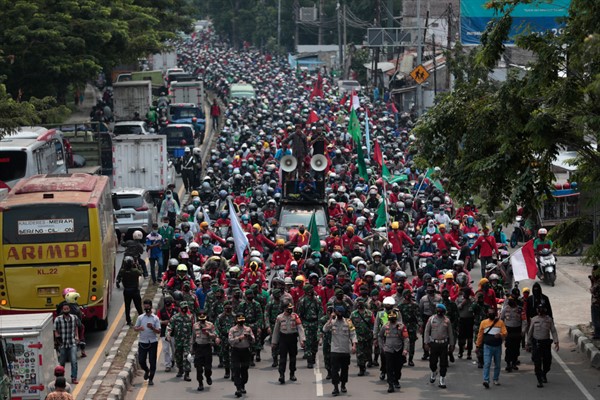In early November, Indonesian President Joko Widodo approved a controversial omnibus law that is meant to bolster Indonesia’s economy by reducing regulations and bureaucracy in areas from mining to forestry and labor to business licensing. Jokowi, as the president is known in Indonesia, has touted such reforms for years; he has claimed the new, landmark Job Creation Law, which clocks in at nearly 1,200 pages, will “create an additional 1 million jobs a year and increase worker productivity, which is below average in Southeast Asia.”
Indonesia certainly does need a reduction in red tape, which has long hindered domestic and foreign investment. And with the economy reeling from the coronavirus pandemic, the omnibus law could help jump-start it by positioning the country to take advantage of several favorable trends. Indonesia is likely to attract investment from companies that are seeking to move some of their operations out of China, as the business climate there deteriorates for foreign firms. Indonesia’s advanced digital economy has become particularly attractive to U.S. tech firms. And U.S. President-elect Joe Biden is likely to reduce trade pressure that the Trump administration had placed on Southeast Asian countries, including Indonesia.
But the omnibus law also contains the seeds of multiple problems that could come back to haunt Jokowi, who began his second five-year term in October 2019. It has been condemned by unions and labor rights groups, which organized massive, occasionally violent protests against the law throughout October. Activists say its measures will hurt wages and job security, and could further damage the environment. And while the law’s supporters claim it will streamline bureaucratic processes and reduce corruption, particularly at local and regional levels, it may wind up contributing to a worrying trend of centralizing power again in Jakarta, in a country that for decades was dominated by the highly centralized and autocratic regime of former dictator Suharto.

